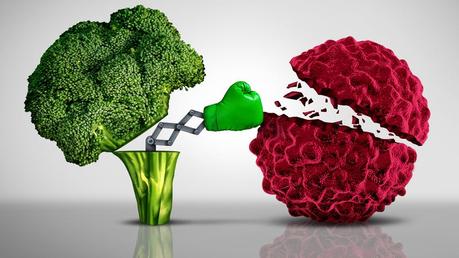
Dr. Siddhartha Mukherjee, a giant in the field of cancer research, prolific writer and Pulitzer Prize-winning author of The emperor of all maladies: A biography of cancer is thinking, writing and designing studies about ketogenic diets and their effects on the progression of cancer.
In a well-placed and easy-to-read article in The New York Times Magazine, Mukherjee makes the case that we should be doing more to investigate the impact of diets on our bodies and the ability of foods to help with healing.
The New York Times Magazine: It's time to study whether eating particular diets can help heal usThe article begins with a personal story and rolls into a general but insightful observation:
Unlike most medicines, whose effects we sift, measure and scrutinize, often using the most rigorous clinical trials, human diets - the other set of molecules we put into our bodies - have gone relatively unexamined. We are living in a molecular age of targeted therapies, in which strategies like immune modulation, genome sequencing and gene editing are used to probe and alter human biology. And yet, while aspects of human diet have undoubtedly changed, we may be eating what we eat for no good reason at all.
But the doctor doesn't stop there. He moves into a dialog about sugar and cancer, including a big reveal of his large new research project, focusing on pairing a promising yet thus-far-unsuccessful drug with a keto diet in hopes of boosting the drug's efficacy and documenting better results:
By 2019, working with clinicians at Columbia, Cornell and Memorial Sloan Kettering, we hope to begin a study in humans with lymphomas, endometrial cancer and breast cancer, to use ketogenic diets in concert with the PI3 kinase inhibitors.
PI3 kinase inhibitors are drugs that inhibit an enzyme, PI3 kinase, that regulates cellular growth. The idea behind the drug was that by reducing the activity of this enzyme, the drug might reduce tumor growth. But with a regular diet, the drug caused many patients to develop diabetes; glucose and insulin levels soared. Since insulin is itself a potent growth factor, might this undo the work of the PI3 kinase inhibitor? And if patients switch to a ketogenic diet, fueling themselves with fat instead of glucose and minimizing the insulin response, might the new drug be allowed to do its work? These are the questions that the large team of researchers under Dr. Mukherjee's direction will address.
The renowned oncologist goes on to mention that there is much to be learned. He explains that in some cancers, there is evidence that a keto diet, when not paired with the right drug, might accelerate tumor growth. And he added that this sort of nuance is often met with stiff resistance on social media, where people in various "camps" have a knee-jerk reaction (either pro or con) to any mention of ketogenic therapy. If both sides could tone this tribal warfare down and embrace the nuance, perhaps we would see more progress.
We agree that we do have much to learn. Although there is strong evidence that ketogenic diets are therapeutically useful in many applications, with cancer there is much less certainly. How wonderful that this mainstream trial is about to get underway, especially with a curious and open-minded researcher at the helm. Knowledge is power, and shining the bright light of mainstream attention and resources on the potential of keto diets as an adjuvant cancer therapy is very good news indeed.

